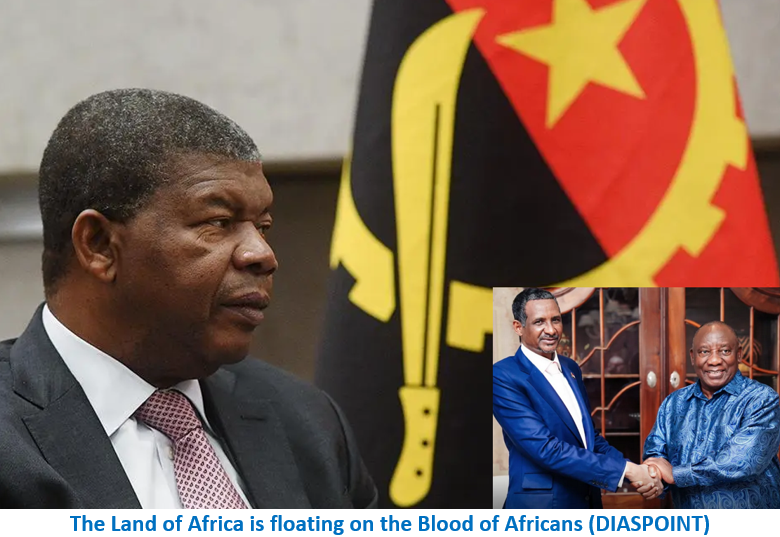Sudan should avoid the mistakes that kept Angola in conflict for 27 years
Post By Diaspoint | January 12, 2024

Sustainable peace cannot be built by commanders relying on perpetual conflict to maintain political power
When General Mohamed Hamdan Dagalo, the leader of Sudan’s paramilitary Rapid Support Forces (RSF) and former deputy chairman of the Transitional Sovereignty Council of Sudan, landed in Gauteng, South Africa on January 4 for talks with President Cyril Ramaphosa, he looked civil and dapper in a navy blue suit.
His calm, confident and businesslike demeanour implied he was on a mission to rescue Sudan from the violent excesses of his obstinate adversaries in the Sudanese Armed Forces (SAF), led by Abdel Fattah al-Burhan.
Thus, as Dagalo, known widely as “Hemedti”, posed for pictures with a smiling Ramaphosa, he did not look like a rogue military commander who is alleged to have overseen horrendous war crimes – torture, extrajudicial killings and mass rape among others – in Darfur in 2014 and 2015.
Standing proudly next to the president of Africa’s second wealthiest nation, acting like a dignified and magnanimous statesman, he did not look like a vicious, power-hungry military operative who had just nine months ago launched a devastating civil conflict that already killed 12,000 people and displaced over seven million others.
Hemedti’s recent rebranding as a mainstream political leader and a rightful representative of the Sudanese people – achieved through well-advertised performances of camaraderie not only by Ramaphosa but also the leaders of Uganda, Kenya, and Rwanda among others – is of course nothing but a charade.
Since the beginning of Sudan’s latest civil war, Amnesty International says, fighters from both Hemedti’s RSF and al-Burhan’s SAF have committed egregious human rights violations and war crimes including deliberate attacks on civilians, attacks on civilian infrastructure like churches and hospitals, mass rape and other sexual violence.
Read More from original source
